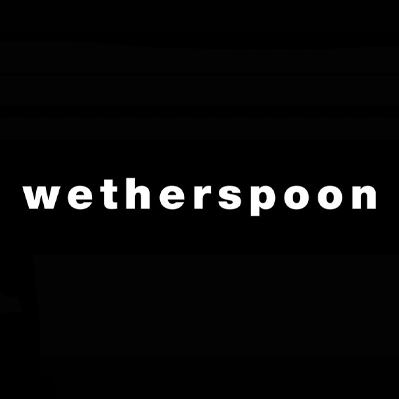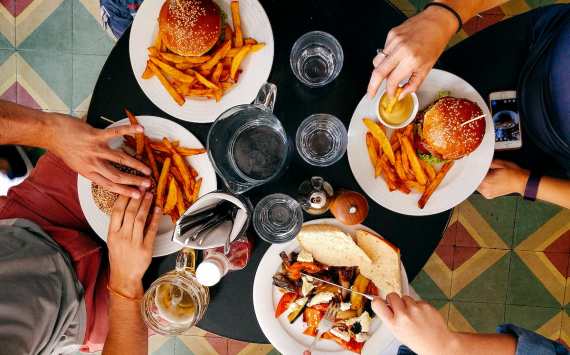Description
J D Wetherspoon plc (branded variously as Wetherspoon or Wetherspoons, and colloquially known as Spoons) is a pub company operating in the United Kingdom and Ireland. The company was founded in 1979 by Tim Martin and is based in Watford. It operates the sub-brand of Lloyds No.1 bars, and around 50 Wetherspoon hotels. Wetherspoon is known for converting unconventional premises, such as former cinemas and banks, into pubs. The company is publicly listed on the London Stock Exchange and is a constituent of the FTSE 250 Index.
History
Tim Martin opened his first pub in 1979 in Colney Hatch Lane in Muswell Hill, London. Many of the other early Wetherspoon pubs were also in the western part of Haringey. The name of the business originates from JD, a character in The Dukes of Hazzard, and Wetherspoon, the surname of one of Martin's teachers in New Zealand, who had told him that he would not amount to anything.
During the 1990s, Wetherspoons began a policy of routinely closing its smaller or less profitable outlets, often replacing them with larger premises close by. In 1998, Wetherspoons introduced the oversized pint glass to promote the "full pint". This initiative was withdrawn, supposedly because customers were still asking for top-ups, but arguably because other pub chains did not follow its lead.
Wetherspoons pioneered non-smoking areas in pubs before the Smoking, Health and Social Care (Scotland) Act 2005, The Smoking (Northern Ireland) Order 2006 and the Health Act 2006 in England and Wales became law in 2006.
The company produces a quarterly in-house magazine, Wetherspoon News, which contains information on the company's activities, its employees, pubs, political views and comments on recent media mentions. The chain also offers a mobile app from which customers can order food and drink to their table to avoid using the bar, even from outside the pub.
On 16 April 2018, Wetherspoons deleted all of its social media profiles. Chairman Tim Martin cited the "current bad publicity surrounding social media, including the trolling of MPs and others" as a reason for the decision.
Brexit
The firm – whose founder is a strong supporter of Brexit – replaced champagne with British sparkling wines and Australian wines on 9 July 2018. The firm stated the goal of this was to sell cheaper drinks and to get cheaper alcohol to its two million weekly customers.
COVID-19
In mid-March 2020 during the COVID-19 pandemic in the United Kingdom, the government advised the public to avoid areas like pubs, clubs, restaurants, and gyms. As a result, many pub chains closed. However, Wetherspoon chairman Tim Martin rejected the government's advice and refused to close a single pub, saying that his instinct was that "closure won’t save lives but will cost thousands of jobs". The government ordered the closure of all pubs from 21 March. The media also reported that Martin refused to pay its 43,000 employees for the period of closure until the furlough costs had been reimbursed by the Government, unlike other national chains which were covering the costs upfront. Martin encouraged Wetherspoons staff to find employment elsewhere, such as the supermarket Tesco. The majority of staff were placed on the Government furlough scheme after its announcement. The Wetherspoon group later suggested that Martin's statement had been reported misleadingly, and said that staff had been paid every week during the closure.
Wetherspoons also told its suppliers in March it would not pay them until its 874 pubs were allowed to reopen after the coronavirus lockdown. In October 2020, Wetherspoons reported its first loss in 36 years. For the year ending in July 2020, the company published a pre-tax loss of £34.1 million; the previous year, it reported a pre-tax profit of £102.5 million.
In March 2021, Wetherspoons reaffirmed its expansion plans including 75 projects, comprising 18 new pubs and 57 significant extensions to existing venues. Martin said that the ten-year project would create 2,000 jobs for staff, but that it would be "conditional on the UK opening back up again on a long-term basis, with no further lockdowns or the constant changing of rules".






















